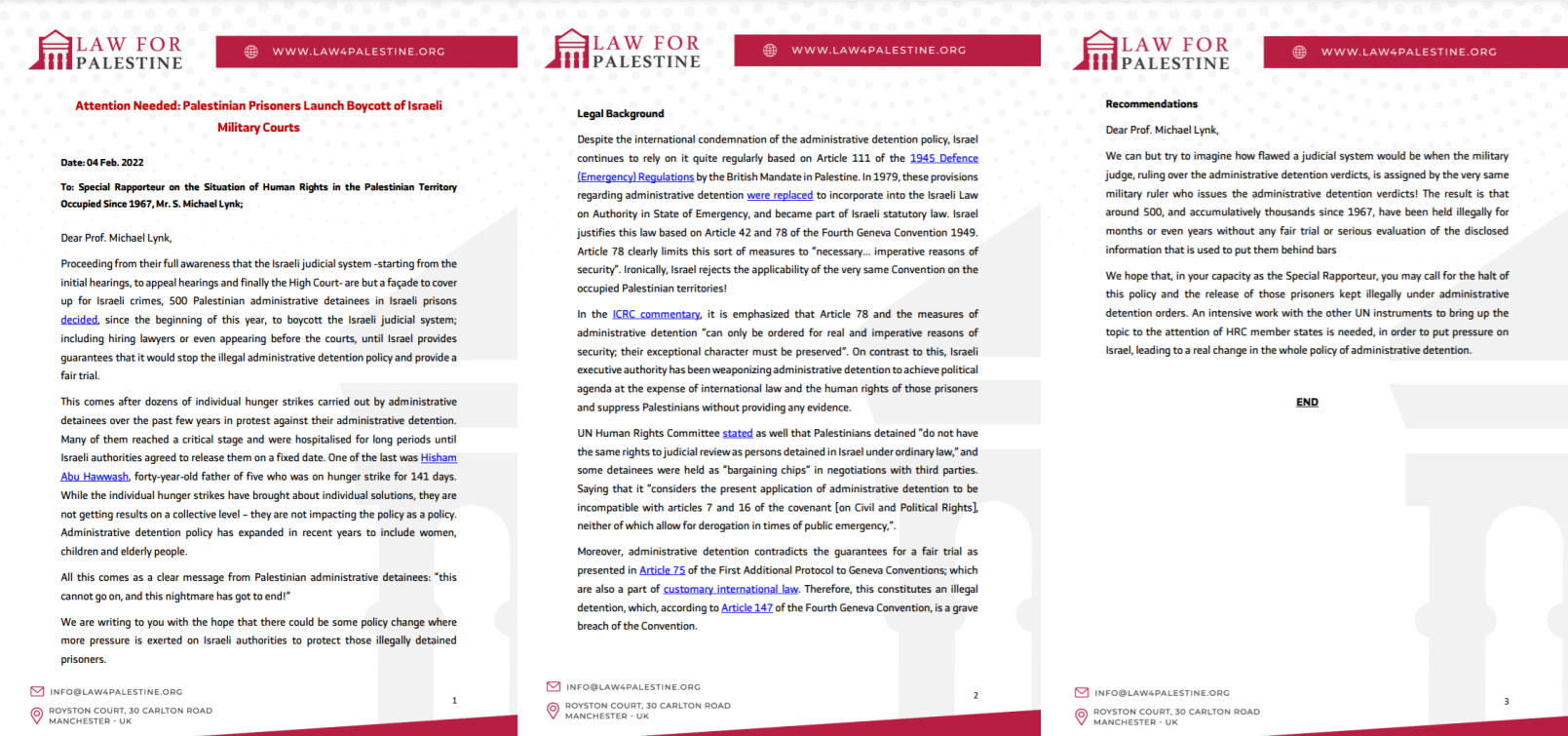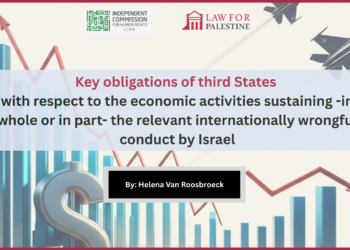United Kingdom. February 9, 2022
Law for Palestine addressed UN Special Rapporteur on the Situation of Human Rights in Occupied Palestinian Territories since 1967, Michael Lynk, regarding the administrative detention of Palestinians in the occupied territories. This came in light of the fact that administrative detainees in all Israeli prisons; have held a protest by boycotting all levels of Israeli military courts since the beginning of this year.
The organization called on the Special Rapporteur to urgently seek to stop administrative detention policies and immediately intervene; to exert pressure on Israel to release administrative detainees who are illegally detained. Besides calling on the United Nations and its agencies to intensify their work to take note of this issue, and draw international attention to bring real and effective changes to Israel’s administrative detention policy.
In its letter, Law for Palatine remarked that the administrative detainees’ protest, made by nearly 500 detainees, included boycotting the first instance courts, the courts of appeal, and the Supreme Court of Israel, including refusing to appear in courts, not to mention appointing lawyers or legal representatives to plead for them; in protest against the Israeli judicial system, which the detainees considered to be “nothing but a facade to cover up the Israeli crimes against them.”
This escalation by the administrative detainees came after dozens of individual hunger strikes over the past years; in protest against their administrative detention
The organization said that this escalation by the administrative detainees came after dozens of individual hunger strikes over the past years; in protest against their administrative detention, as many detainees reached critical stages and were transferred to hospitals for long periods. The results of these strikes often led to individual solutions rather than collective changes, and are not impacting the policy as a policy. On contrast; the policy of administrative detention has expanded in recent years to include women, children and the elderly.
Legal Background
Israel justifies administrative detention based on the 42 and 78 articles of the Fourth Geneva Convention of 1949. However, the articles limit this type of procedure to “the necessary reasons… the imperative for security”. According to the ICRC commentary on article 78, it was emphasized that administrative detention measures “can only be ordered for real and imperative reasons of security; their exceptional character must be preserved.”
On the contrary, the Israeli occupation authorities have been weaponizing administrative detention to achieve a political agenda at the expense of international law without providing any evidence. The United Nations Commission on Human Rights has stated that some Palestinians in administrative detention have been detained as “bargaining chips” in order to promote negotiations with other parties. Paradoxically, Israel, while relying on the Fourth Geneva Convention to justify the practice of administrative detention, rejects the application of the same Convention to the occupied Palestinian territories.
Moreover, the administrative detention practiced by Israel runs counter to the fair trial guarantees of article 75 of Additional Protocol I to the Geneva Conventions, which is also part of Customary International Law. As a result, this type of detention should be considered as “Arbitrary and illegal detention”. In accordance with article 147 of the Fourth Geneva Convention, this type of detention is considered a grave violation of the Convention that requires accountability within the rules of Universal Jurisdiction.





